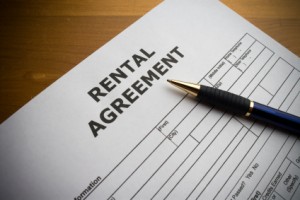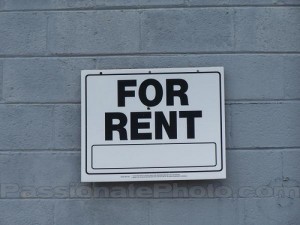Posted by Teresa on May 30, 2012 under Lease and Rental Agreements | 
 The still-slow economy means vacationers are looking for ways to save money, and everyone else is looking for ways to make it. Put them together, and you have strong growth in vacation rentals—and not just beach houses. Ordinary rental homes and apartments are desirable by travelers and tourists alike who prefer to avoid high rates and fees charged by hotels for everything from parking to WiFi.
The still-slow economy means vacationers are looking for ways to save money, and everyone else is looking for ways to make it. Put them together, and you have strong growth in vacation rentals—and not just beach houses. Ordinary rental homes and apartments are desirable by travelers and tourists alike who prefer to avoid high rates and fees charged by hotels for everything from parking to WiFi.
Some “hosts” vacate their apartments and turn the entire unit over to their “guests,” while others rent just a couch or spare room—and take on temporary roommates. Most have not considered reviewing their leases to make sure this situation is even allowed. And it probably isn’t, considering that “no subletting without landlord approval” is a common clause in most rental agreements and leases.
As summer vacation season kicks off, what can landlords do to prevent unknown, unscreened strangers from staying in their properties without their consent?
- Send out a friendly reminder to all tenants that subletting without your permission is not allowed—whether it’s temporarily turning over the entire rental to a third party, or renting out a part of it.
- Explain your concern for the safety of all tenants, who would be at risk if your tenant screening procedures were not followed for everyone residing on your property—even temporarily.
- Notify tenants that anyone violating the policy is subject to eviction.
Your rental property is yours alone to profit from. You have the responsibility for maintenance, repairs, paying taxes and keeping tenants safe. Your tenants do not have the right to rent out your property and profit from your investment, unless you condone it. Make sure that your leases include a no-subletting clause—and that you uniformly enforce it.
Posted by Teresa on March 30, 2012 under Housing Trends, Landlord Tips, Lease and Rental Agreements | 
 It seems that smokers are having more and more trouble finding places to light up these days. They can’t smoke at work, or in most other public places, like bars and restaurants. Some municipalities are banning smoking in outdoor parks and other public places, too. Seems like his or her own home will soon be the only place a smoker can legally smoke. Unless they live in a no-smoking rental property.
It seems that smokers are having more and more trouble finding places to light up these days. They can’t smoke at work, or in most other public places, like bars and restaurants. Some municipalities are banning smoking in outdoor parks and other public places, too. Seems like his or her own home will soon be the only place a smoker can legally smoke. Unless they live in a no-smoking rental property.
Is that the case for your rental properties? Are your tenants allowed to smoke in their units, or in common areas? For an increasing number of landlords, the answer is “no.” It’s not so much the smokers’ health that landlords are concerned about—it’s the health of the rest of tenants, including children, who are subjected to second-hand smoke.
If you’re ready to ban smoking in your rental properties, you might experience some pushback from smoking tenants. Smoking is legal, after all. But landlords are within their rights to ban many legal activities, such as owning a pet, playing loud music or operating a business from home.
In many states, laws are changing to specifically state that landlords may adopt no-smoking policies. And some cities have instituted smoking bans on multiunit properties.
A new no-smoking policy generally requires 30 days’ notice before it can go into effect. A tenant with a current lease cannot be subjected to the ban until the lease expires and they sign a new one.
If you’re going smoke-free, think about how you’ll handle your policy. Will you include all units as well as common areas? Will smokers be allowed to smoke in a far corner of the property, or in an isolated area of the parking lot? How will you handle violators? If you own several buildings, would you convert some to smoking and the rest to non-smoking?
There are several ways to approach it, but encouraging tenants to give up smoking is good for everyone. After all, if you won’t subject a tenant to a neighbor’s noise, why would you want to subject him or her to a neighbor’s second-hand smoke?
Protect your rental property and assets through tenant background checks. Proper tenant screening will ensure you are leasing to the best possible tenants.
Posted by Teresa on March 14, 2012 under Landlord Tips, Lease and Rental Agreements | 
 Ahhhh, a cozy, cracking fire on a cool evening. What could be better? If you’re an owner of a rental property with a fireplace, you could probably write a long list to answer that question.
Ahhhh, a cozy, cracking fire on a cool evening. What could be better? If you’re an owner of a rental property with a fireplace, you could probably write a long list to answer that question.
But most people enjoy sitting by a fire, so a fireplace can add great value to a rental property. Newer homes and apartments often have gas fireplaces—if they have one at all. Wood burning fireplaces are common in older homes and apartment buildings. And landlords are split on whether or not to allow tenants to use them.
Here are some factors to consider when you own rental properties with wood burning fireplaces.
- Fireplaces can be dangerous: a fireplace can also cause serious fire and smoke damage if not used properly.
- Too many people do not know how to use them properly. Some use gasoline to start fires. Others store wood too close to the fire, or don’t use doors or screens to keep embers from igniting nearby carpets or curtains. And news reports often showcase the tragic results of improper disposal of ashes.
- Fireplaces require regular maintenance: yearly inspections and professional cleanings are essential to keep fireplaces safe to operate.
- They waste heat: much of the heat generated by a fireplace goes right up the chimney—and they draw warm air from the rest of the room, too.
- Liability issues: if your tenants do not have renter’s insurance, you may be liable for any damage that occurs as a result of their negligence or an improperly operating fireplace.
- They attract pests: Chimneys are a great place for birds and squirrels to nest.
If you decide to allow tenants to use fireplaces or woodstoves in your rental property, be sure to include a provision in the lease and have the tenant sign, acknowledging they understand and agree to your terms. Check with your insurance provider about how it will affect your premium, coverage and liability.
Protect your rental property and assets through tenant background checks. Proper tenant screening will ensure you are leasing to the best possible tenants.
Posted by Teresa on March 9, 2012 under Landlord Tips, Lease and Rental Agreements | 
 Around the country, landlords, insurance companies and municipalities are responding to reports of attacks and other problems posed by “bully breeds” of dogs—mostly pit bull terriers—by prohibiting residents from owning them. The New York City Housing Authority has banned pit bulls from its properties. Some municipalities around the country have also outlawed the breed.
Around the country, landlords, insurance companies and municipalities are responding to reports of attacks and other problems posed by “bully breeds” of dogs—mostly pit bull terriers—by prohibiting residents from owning them. The New York City Housing Authority has banned pit bulls from its properties. Some municipalities around the country have also outlawed the breed.
On the other side of the argument are the pet owners who love their animals, as well as those who insist their dogs are companion animals, protected by law. In one such case, a 76-year-old tenant has been told she must give up her pit bull or face eviction. Her landlord has received four written complaints about the dog, from teeth-baring and lunging incidents to barking at children. While the tenant has a doctor’s order certifying the dog as a companion animal, other residents feel the dog has not been properly trained, and it’s just a matter of time before a resident or child is hurt.
The American Insurance Association says that dog bites are one of the biggest categories for homeowners’ insurance claims. In assessing risk, and with millions of dollars per year in damage awards, many insurers refuse to cover homeowners with pit bulls, Rottweilers and other breeds deemed “aggressive.”
Some animal protection groups, such as PETA, are calling for bans on breeding pit bulls, while others insist such actions are discriminatory, and that owners need to be accountable for the actions of their dogs.
Landlords have the right to prohibit animals in rental properties, with the exception of companion and service animals for the disabled. If you as a landlord allow animals, you may designate which types your tenants may keep in your property. Some landlords limit dogs by weight; others prohibit snakes and other exotic animals, while others specifically prohibit dog breeds with a reputation for aggressive behavior.
Just be sure your lease agreement clearly states the rules and the consequences of breaking them. Check with your lawyer and your insurance agent to see how allowing these breeds affect your risk.
Posted by Teresa on February 10, 2012 under Lease and Rental Agreements | 
 Everyone wants to live in peace, but that’s not always possible when living in multi-family housing. Babies cry, stereos are played too loudly and some neighbors have no concept of “quiet.”
Everyone wants to live in peace, but that’s not always possible when living in multi-family housing. Babies cry, stereos are played too loudly and some neighbors have no concept of “quiet.”
Where do landlords draw the line? Are they responsible for acting as noise police? Are landlords even allowed to address noise in a lease? And who decides what noise level is acceptable?
The short answer is that landlords may include excessive noise clauses in their leases. Some leases may specify that stereos are not to be played at high volume. Others may ban musical instruments such as electric guitars or drums, and vocal or instrumental practice or instruction. It makes sense that tenants would complain about a piano or trumpet teacher living next door, but what about the kid down the hall who needs to practice her clarinet? As a landlord, you may ban that type of noise, as well.
If you’re hearing complaints on this subject from your tenants, you may need to add a noise clause to your lease. It could be as simple as not allowing any noise that disturbs other residents, or that can be heard outside the unit.
Unfortunately, many tenants don’t seem to be mindful of others, and those who are careful about not being too loud have to sometimes put up with noisy neighbors.
And while you can’t stop a baby from crying, you can prevent noise pollution in the form of a fourth-graders’ clarinet practicing (which could be nerve-wracking), a garage band rehearsal, or a DJ practicing her skills at all hours of the night. As in any lease clause, follow through is most important.
Be careful not to allow any exceptions to the rule, or you could be seen as treating one tenant differently than another, which could lead to accusations of discrimination.
Protect your rental property and assets through tenant background checks. Proper tenant screening will ensure you are leasing to the best possible tenants.
Posted by Teresa on October 7, 2011 under Landlord Paperwork and Forms, Lease and Rental Agreements | 
 When leases are about to expire, landlords need to decide whether or not to renew and re-sign with a tenant, or notify them there will be no lease renewal. It’s important to know the terms of your lease agreement, obviously, but most require a 60- or 30-day notice from either party if a lease will not be renewed. Remember, it’s up to the landlord whether or not to offer a new lease and keep a tenant. Of course, tenants who wish to move have the option to end the relationship at the end of the lease, but if the landlord decides a tenant is out, there’s not much a tenant can do.
When leases are about to expire, landlords need to decide whether or not to renew and re-sign with a tenant, or notify them there will be no lease renewal. It’s important to know the terms of your lease agreement, obviously, but most require a 60- or 30-day notice from either party if a lease will not be renewed. Remember, it’s up to the landlord whether or not to offer a new lease and keep a tenant. Of course, tenants who wish to move have the option to end the relationship at the end of the lease, but if the landlord decides a tenant is out, there’s not much a tenant can do.
Landlords need to know in advance if a tenant plans to stay or move. It’s not a bad idea to send the tenant a notice, ask if they’re staying or leaving, and have them check a box: I’m interested in renewing; or I’m moving out. Sending a notice ahead of time is also a great way to remind tenants that any security deposit paid is just that—and that the last month’s rent will be due as usual, with the security deposit covered separately.
If the tenant is paying rent on time and abiding by the terms of his or her lease, it’s to the landlord’s advantage to keep the tenant in place, avoiding the expenses and time associated with finding a replacement. Some landlords who want to keep their tenants send a friendly letter notifying them that the lease is up for renewal, and offering a discount on the standard annual rent increase because they are “preferred tenants.” Others put the new rent at the standard rate and offer a $50 gift card, new light fixtures, or some other perk for renewing.
The strong rental market means landlords can be a bit choosier. So if a lease renewal date is coming up and a tenant no longer fits your requirements, you simply need to notify him or her that you will not be renewing the lease. Give at least 30 days’ notice, or more if you lease or local laws require it.
3 Reasons to Let a Bad Tenant Go:
- Late rent: Even if a tenant pays the rent every month, if they pay late every month, it’s a hassle. Get someone in who will pay every month, on time.
- Breaking terms of lease: Every item in the lease was agreed to by your tenant when they signed it. If you have a tenant who is smoking in a non-smoking unit, or piling garbage around the dumpster instead of in it, or taking up three parking spots instead of one, you may decide that you no longer wish to put up with the headaches a tenant like this can cause.
- High maintenance: Certainly, legitimate complaints about repairs and maintenance are your responsibility as a landlord. But if you have a tenant who complains about a light bulb burning out, or the lack of air conditioning in a unit that never had it, or any number of other insignificant non-issues, you have the right to not renew the lease.
Protect your rental property and assets through tenant background checks. Proper tenant screening will ensure you are leasing to the best possible tenants.
Posted by Teresa on September 21, 2011 under Landlord Paperwork and Forms, Lease and Rental Agreements | 
 As a landlord, do you keep track of tenant lease renewal dates? It’s important to do so, for a few reasons.
As a landlord, do you keep track of tenant lease renewal dates? It’s important to do so, for a few reasons.
If you’re on a one-year lease schedule, set reminders to contact tenants prior to the lease expiration to thank them for leasing your property and inform them it will soon be time to sign a new lease. If you will be raising the rent, now is the time to inform your tenant. You may wish to provide a perk such as an appliance upgrade or new carpet to entice them to renew at the higher rent.
At lease signing, have your tenant fill out an updated information form, so you can be sure to have current employment information, emergency contacts, current occupants and vehicle license numbers:
- You’ll want the employment information in case your tenant vacates the unit and owes you rent. If you’re forced to go to court to collect, you’ll want to know where you can garnish the tenant’s wages, if it comes to that.
- Personal and emergency contacts are important, not only in case of an actual emergency, but again, if the tenant breaks the lease and owes you rent, you’ll have a place to start looking for him or her.
- Vehicle license information is vital to keeping unauthorized or unknown vehicles off your property.
- Asking for current occupants are a great way to discover if there are unauthorized residents staying in your rental property. If there are “guests” over age 18, you’ll want to point out the lease clause that covers your guest policy (such as limiting guests to two consecutive weeks in any six month period) and require lease applications and tenant background checks from anyone living in your rental unit who is not on the lease. Of course, if the new tenant is permanent, you’ll need a to draw up a new lease that includes his or her name.
Remind tenants that they must provide written notice if they intend to move out at the end of the lease. Ask for an exact date they will be vacating. However, don’t promise the unit to a new tenant until you are absolutely sure that the old tenant is moving out.
Posted by Teresa on September 17, 2011 under Lease and Rental Agreements | 

Dealing with tenants who want to break a lease early doesn’t have to be unpleasant. Experienced landlords often offer tenants a buy-out agreement as a way to compensate them for the trouble of a breaking the lease.
You can set the conditions of the buyout according to your needs. For example, you can release your tenant from the lease and any remaining rent obligations, in exchange for a fee. While the fee does not affect the tenant’s obligations for any property damage (any security deposit paid by the tenant is a separate matter), it can compensate you for your time and trouble in finding a replacement tenant, plus your advertising expenses and possible loss of rental income while undergoing the process.
Be sure that the terms and conditions of the buy-out agreement are clearly spelled out in a document that will be signed by you and all tenants listed on the original lease agreement. Include the dollar amount of the fee, which might equal one, two or three months’ rent, along with the date the property will be vacated, and other details concerning property inspection, key return, security deposit, and forwarding address information. It’s a good idea to have all of your lease and agreement documents reviewed by a landlord/tenant attorney.
The amount of the fee should cover the loss of rent for the time you expect it will take to re-lease the property, advertising expenses and any other costs related to the tenant terminating the lease.
Legal disclaimer:
The contents of this article are intended for general information purposes only, and should not be relied upon as a substitute for obtaining legal advice applicable to your situation.
Posted by Teresa on August 5, 2011 under Lease and Rental Agreements | 
 When a tenant moves out, but leaves personal property behind, what is the best way for a landlord to handle it? As with most tenant issues, the best way to take care of a problem is to prevent it in the first place. And barring that, it’s best to have it covered in your lease so there are no questions about how to proceed, and the tenant has already agreed to the process.
When a tenant moves out, but leaves personal property behind, what is the best way for a landlord to handle it? As with most tenant issues, the best way to take care of a problem is to prevent it in the first place. And barring that, it’s best to have it covered in your lease so there are no questions about how to proceed, and the tenant has already agreed to the process.
Tenants often leave furniture, clothes, books or appliances behind when they move. Some no longer want the items, and figure the landlord will just clean up after them. Others want the landlord to store their property until they are able to retrieve it. Either way, it can be troublesome for the landlord.
When a Tenant Abandons Property
First, check your local laws on abandoned property. You may be obligated to hold a previous tenant’s property for a period of time, which could be five days or 30 days, before you may dispose of it. Some jurisdictions require landlords to send notices via registered mail as well. Failing to follow your local laws could land you in legal trouble, so if you’re in doubt, obtain legal counsel.
Preventing the Left-Behind Property
The best scenario is when landlord and tenant do a walk-through of the rental property on move-out day. A move-out inspection is conducted and the tenant initials each item, recognizing any damage or possible deductions from the security deposit. However, that’s not always possible. If you or your property manager are not present when the tenant leaves (and many do so under the cover of darkness—especially if they’re leaving behind a mess), you could be in for a big surprise when you come to inspect the property.
Every rental agreement should contain a clause that clearly addresses how the property owner will handle any property left behind after the lease is up. Abandoned property should be defined, and the time between the end of the lease and the disposal of the property clearly stated. Remember, you’re not running a storage facility, and you could be entitled to rent for each day a tenant’s personal belongings are in your rental property.
You could simply state that all property left behind after termination of the lease will be considered abandoned and will be disposed of, according to statute. Of course you should consult a landlord/tenant attorney for exact language and guidance.
Posted by Teresa on July 8, 2011 under Eviction, Lease and Rental Agreements, Rents and Deposits | 
 Whether you accept actual checks or electronic rent payments from your tenants, you may face a time when the tenant lacks funds to cover their payment—and your account is hit with a fee. Bounced checks cause loss of time and productivity, and landlords should not allow tenants to treat a returned rent check as anything less than the serious situation it is.
Whether you accept actual checks or electronic rent payments from your tenants, you may face a time when the tenant lacks funds to cover their payment—and your account is hit with a fee. Bounced checks cause loss of time and productivity, and landlords should not allow tenants to treat a returned rent check as anything less than the serious situation it is.
How do you handle bounced checks from your tenants?
Many landlords we know demand immediate full payment from the tenant for the rent, any applicable late fees, and a separate handling fee. The handling fee should cover both your bank’s returned check charge and your administrative time. If the full rent payment comes in after late fees have been assessed, be sure to add them to the total due.
Check your local and state laws regarding the amount of late and returned check fees you can charge. You may be able to charge a tenant penalties and interest; or you may be limited to a flat fee.
In addition, check local and state ordinances or with a landlord/tenant attorney regarding whether late and returned check fees must be spelled out in lease agreements. In some states and localities, fees must be clearly stated in the lease or the landlord may not charge them. In others, whether or not the lease includes the fees has no bearing.
Of course, including all applicable terms and fees in the lease is always a good idea. If your lease clearly spells out the consequences for bounced checks, including late fees, repayment requirements and time limits before eviction proceedings begin, your tenants should have no questions or surprises if and when they do write a rent check without having sufficient funds to cover it.
Protect your rental property and assets through tenant background checks. Proper tenant screening will ensure you are leasing to the best possible tenants.
 The still-slow economy means vacationers are looking for ways to save money, and everyone else is looking for ways to make it. Put them together, and you have strong growth in vacation rentals—and not just beach houses. Ordinary rental homes and apartments are desirable by travelers and tourists alike who prefer to avoid high rates and fees charged by hotels for everything from parking to WiFi.
The still-slow economy means vacationers are looking for ways to save money, and everyone else is looking for ways to make it. Put them together, and you have strong growth in vacation rentals—and not just beach houses. Ordinary rental homes and apartments are desirable by travelers and tourists alike who prefer to avoid high rates and fees charged by hotels for everything from parking to WiFi.








